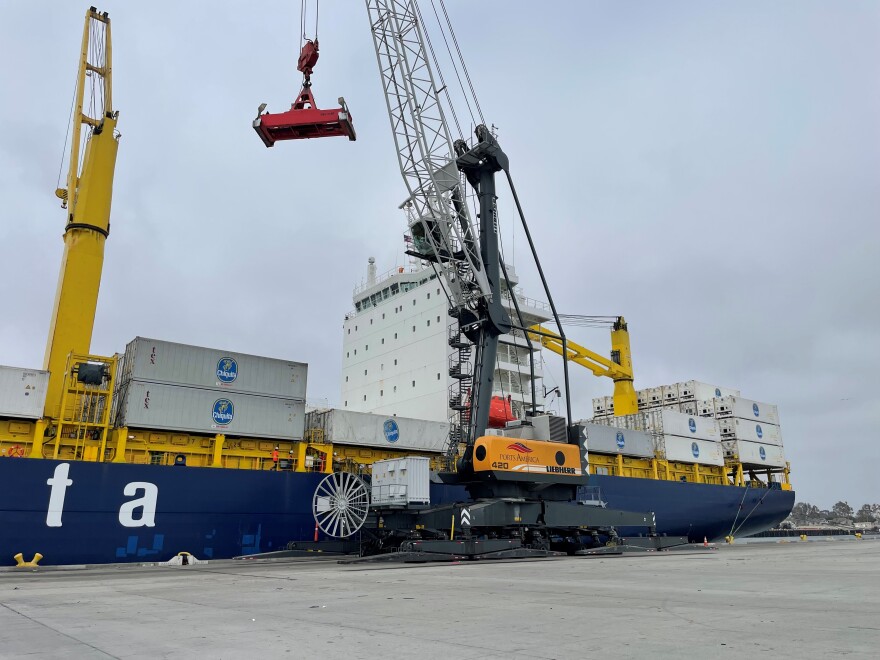Billions of dollars a year in goods ranging from fresh produce to vehicles are imported through Ventura County. How will the Trump Administration's tariffs affect it?
The Port of Hueneme is the only deep-water port between Los Angeles and San Francisco. It handles $25 billion a year in imports and exports.
Port officials are closely watching the tariffs for potential impacts on business. One of the key areas of concern is how banana imports might be impacted.
"The port is a top trade gateway for the banana trade," said Kristen Decas, the port's CEO. "We move about five billion bananas through the port on an annual basis. We feed about 15 states bananas. We can't grow enough bananas in our country to feed the nation," said Kristen Decas.
Decas said that depending on the country they come from, some of the imported bananas might be impacted by tariffs, and others might be exempt. "The primary countries (where the bananas come from) would be Guatemala, Ecuador, Costa Rica, and Mexico. "What we're looking at today from the recent developments is about a 10% tariff on those countries we source from, with the exception of Mexico."
She said there's a special exemption on bananas from Mexico.
The other major commodity that comes through the port is vehicles. Trump Administration officials say about half of the 16 million new vehicles sold in the U.S. last year were imported.
"We import over 415,000 vehicles a year. Of that volume, about 96% are imports, and 4% are exports. Top trading partners are South Korea, Germany, the United Kingdom, Japan, and Sweden," said Decas.
With 25% tariffs in place for imported vehicles. Some automakers with plants in Mexico and Canada are planning to shut them down temporarily.
With the tariffs just being announced last week, Decas said so far there have been no impacts on operations. But, she said, there’s a lot of uncertainty in the shipping business.

"Our approach to this has been to stay really close to our customers. Our strategy here is to not be knee-jerk," said Decas. "The common thought here is that this negotiation is still ongoing."
So far, there’s no word of a reduction in vehicle shipments to the port. "What I hear from my customers is that they're more interested to see what the U.S. consumer will do," said the port official. "That may impact volumes into the country. It would be based on demand."
Decas said some automakers using the port may decide to take advantage of its unique foreign trade zone status. They can ship the vehicles to the port and store them at designated facilities. They won’t have to pay tariffs until the vehicles are shipped to dealers. That gives them inventory prepositioned in the U.S., and they're also ready in case the tariffs are lifted.
As you’d expect, a lot of people are keeping a close eye out for potential impacts on the port. It’s responsible for 25,000 jobs in the region and generates about $236 million in local and state tax revenue annually.
2023 was the busiest year on record for the port. There was a slight slump in 2024 due to a rough year for crops from Latin America, because of weather-related problems. But, 2025 started off to equal, or even top, the record set two years ago.



